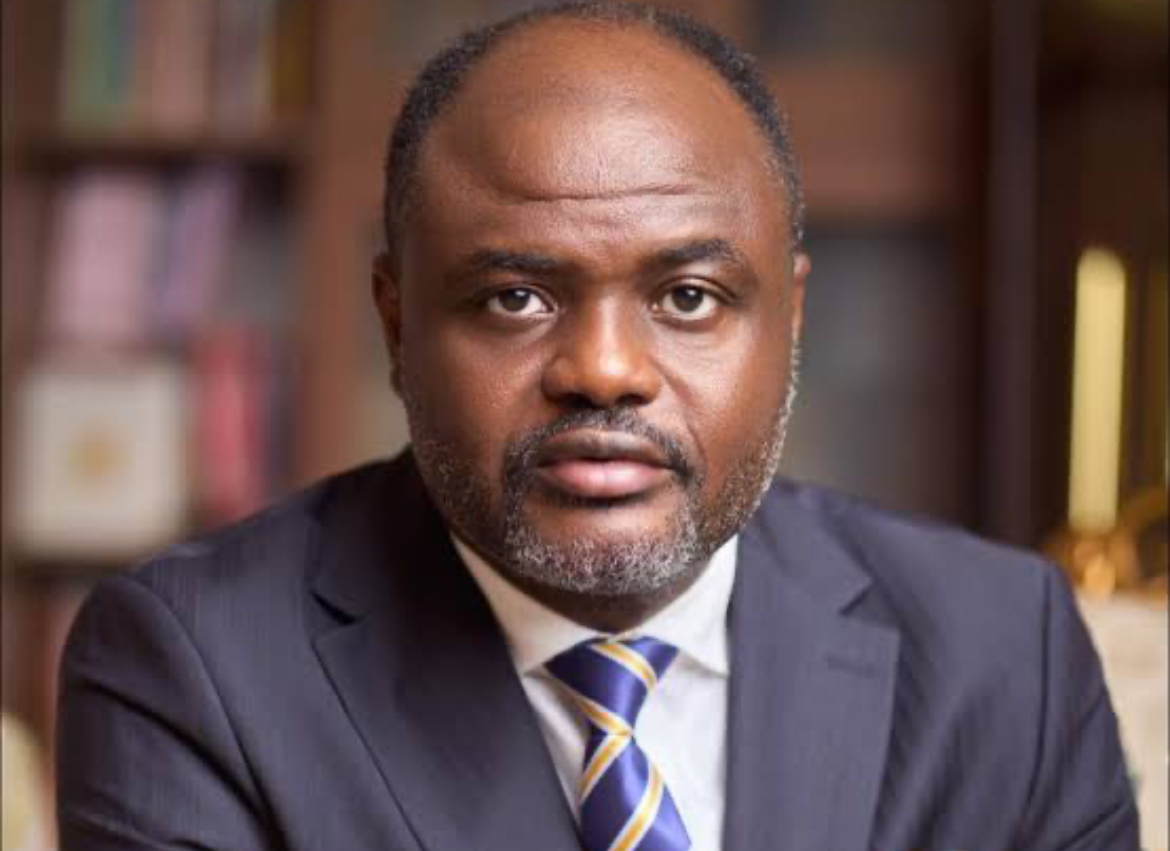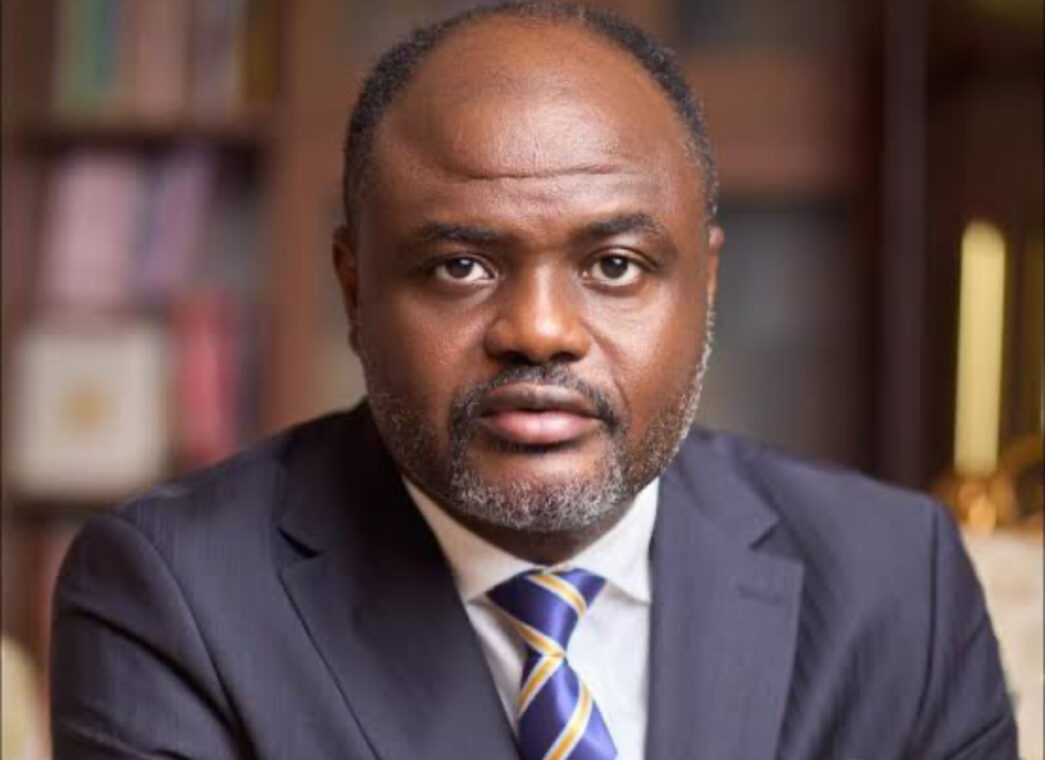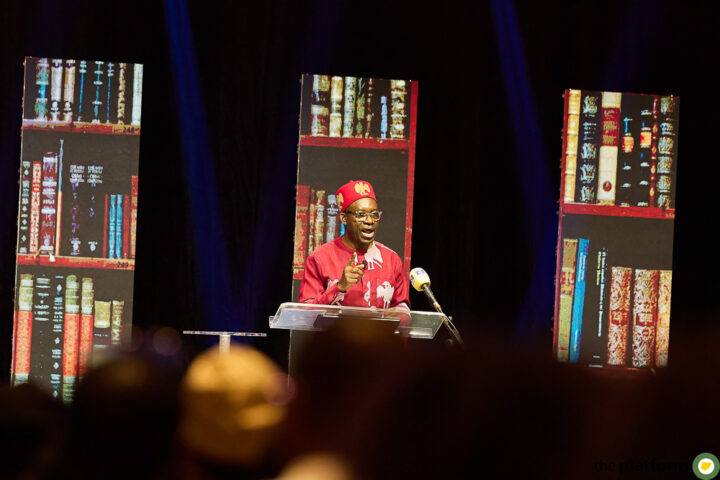There is a hot debate in the Nigerian Christian cycle about the correct form and focus of the Christian message. On the one hand, is Dr. Abel Damina, the lead pastor of the Power City International Church, and on the other is a set of Pentecostal clerics, led by Dunamis Church’s Paul Eneche, who have tagged the Uyo-based Damina a heretic and rebel bent on causing division in the Nigerian church.
The bone of contention is Damina’s fierce pushback on the prosperity gospel’s central claim that donations and offerings to the church will lead to financial blessings from God. Other prosperity gospel beliefs include the idea that poverty and sickness are signs of lack of faith or sin and that faith and positive thinking can guarantee wealth, health and success.
Damina says these claims are not true. Eloquent and media savvy, he has articulated his arguments against these ideas and has not shied from calling out pastors steeped in the prosperity gospel beliefs. This has caused a serious controversy with the Christian community divided for or against the counter evangelist from Uyo, Akwa Ibom State.
It has also led to personal attacks against the pastor, with some mind-boggling allegations made against him. But, however flawed the person of Damina is, I think his counter-evangelism is necessary, even essential. In addition, he, like everyone else, is free to share his views on a matter he deems important. Being of a religious nature shouldn’t preclude anyone from social commentary.
Advertisement
The prosperity Pastors are loud in the media, propagating their beliefs. Those who disagree with them can also leverage media vehicles to push their views. It is a free marketplace of ideas. That is how society gets better—by constant debates leading to behavioural adjustments and established culture. After some time, the process begins again. Christianity thrives on this kind of open discussion, unlike some other religions. A close religion will eventually die out, but one open to an honest conversation can always evolve and thrive, even in another form.
Particularly, the prosperity gospel that has become the dominant strain of Nigerian Christianity since the 1980s requires some counterarguments and pushback. And no one is better qualified to make these counterclaims than a repentant prosperity pimp himself.
Damina used to advocate strongly for a transactional relationship with God. This is illustrated in many of his old videos. Now that he has repented, he knows the terrain on which the ‘transactional pastors’ operate, and especially their use of emotional tools to price the last kobo from the hands of the poor or the reluctant in the name of a transactional relationship with God. He knows the business and is exposing its trade secrets. That is the reason for the hoopla.
Advertisement
It must be sad to grow old and weak before realizing that the promises of the prosperity gospel are hollow and that the only person who gets rich from it is the one at the receiving end. Since the 80s, the prayer points have been the same: wealth, health, security, and the like, while the country increasingly declines. Many Christians today probably regret their dalliance with the big-time prosperity pastors of the 80s—preachers who promised congregants that the only way to secure their future is to make big sacrificial donations to the church, also known as God.
The future is here, and these church sponsors are still struggling, some long dead, while their children are in no better financial shape than their parents. After over 30 years of prominence, the prosperity gospel claims are not validated by the evidence before us.
The majority of its Nigerian adherents are poor, hungry, and struggling, typifying the average national experience. Our country has also not become an El Dorado despite the countless vigils and long and dangerous prayers to change its status.
But many adherents insist their lives have been transformed by the prosperity message. We can’t dispute that. People are entitled to their personal experiences and beliefs. But it can be explained as an outlier experience, the exception rather than the norm. It is like Dangote being from Nigeria. It does not mean Nigeria is rich. Dangote is just an exception. The typical Nigerian is broke, struggling, and doomed to an average life span of about 55 years.
Advertisement
So, we need a Damina. Someone who would counter the claims of the prosperity gospel with as much enthusiasm and feistiness as those pushing the prosperity message. Imagine we had a Damina in the ’80s and ’90s who countered Pastor Kumuyi’s reclusive message, which led his members to destroy their television sets and metaphorically turn their backs on the world.
Today, Kumuyi has repented from that message, enjoying the world’s delights, including flying private jets and appearing on TV shows. Many of his members can only hope they could go back in time to make better decisions concerning their own lives rather than be at the mercy and whims of another flawed human being.
That is why Damina is essential. To provide an alternate gospel so people can seriously consider the counterclaims and make a reasonable decision.
Advertisement
Views expressed by contributors are strictly personal and not of TheCable.











